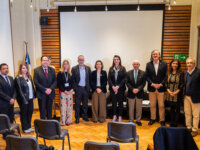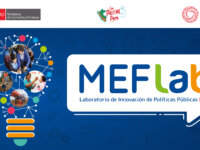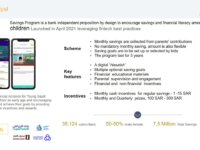The program offers an online Human Rights course for civil servants with modules from 15 Public Administration entities. It includes initial and final webinars featuring the Ombudsman and three civil society associations, respectively. Graduates propose initiatives to implement Human Rights, fostering a "Network of Ambassadors for the Promotion of Human Rights in Public Administration." A Best Practices Guide will highlight implemented projects.
Case Study Library
Where innovations are collected and shared to disseminate and replicate good ideas

Innovations:
0
This website, as well as any data and map included herein, are without prejudice to the status of or sovereignty over any territory, to the delimitation of international frontiers and boundaries and to the name of any territory, city or area.
Futures and foresight methods are fundamental tools to inform decision-making and public policy in order to consider a wide range of future possibilities. The creation of a Latin American Future Network seeks to articulate existing efforts from many countries and enhance capacity building in the region, since capacities are still not well developed. This will benefit citizens by improving public sector services and future-proofing policies aimed at the population wellbeing.
The UNDP in Ukraine training on a human rights-based approach in public policy design helped public servants who are involved in the digitalisation sphere learn how to develop state policies and electronic services based on principles of human rights and gender mainstreaming. It helped them dispel myths and learn the basic requirements, which resulted in more inclusive public services developed for Ukrainian citizens.
Case Study
Unlocking Labour Markets: Removing Bureaucratic Barriers to Enhance Opportunities for the Young…
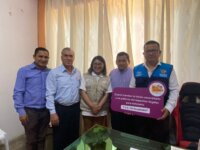
In 2022, INDECOPI identified that 23 universities and 10 professional associations were imposing +700 bureaucratic barriers, affecting the employment insertion of +36 thousand new professionals.
Given this, the Voluntary Elimination of Bureaucratic Barriers Programme was implemented to open regulated professional services at the subnational level.
Based on behavioral tools, INDECOPI engaged with universities and professional associations to eliminate 786 bureaucratic barriers in 17 regions.
Case Study
High Impact Service Provider Case Study: Innovating the Individual Assistance Program For Survivors…
The Federal Emergency Management Agency (FEMA), a component of the United States’ Federal Government, has fully reimagined its DisasterAssistance.gov website to make applying for disaster assistance faster than ever. This change will reduce time burdens for survivors post-disaster, when they are in greatest need and the most overwhelmed. This effort has been built on decades of feedback from disaster survivors and is expected to reduce the registration time by more than 15%.
13 Fellows from 10 different African countries in 8 institutions of the African Union to build a culture of digital innovation: the AU Digital and Innovation Fellowship is the first supranational initiative to make administrative processes in the African Union more user-centred and effective. The challenge: 12 months to integrate innovation into the African Unions processes and products. The results: 11 products in diverse AU institutions and units. And that is just the start!
Case Study
Thematic Innovation Clinic to improve the quality and quantity of public service innovations
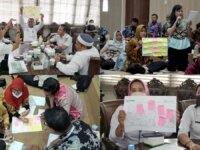
Thematic Innovation Clinic was implemented to encourage and increase number and quality of innovations in Pontianak City. This program succeeded in increasing the number of innovations within the Pontianak City Government to 165 innovations in 2022, and to 196 innovations in 2023. With a design thinking approach, the innovation clinic increases the number of innovations, fosters the spirit and culture of innovation, and cross-party collaboration to deliver optimal public services to community.
Zaragoza City Council has launched a new electronic citizen participation platform with the aim of involving its citizens in public policy decisions and in the design of its services. It provides an interactive space for residents to actively contribute, strengthening the collaboration between the administration and the community, thus fostering a more inclusive and transparent management.
In Peru, the lack of systematic evidence hinders efficient budget allocation and innovative public policy. The MEFLab addresses this by conducting experimental evaluations of programs and policies that benefit the Peruvian Ministries and the citizens through improved public services. The lab's innovation lies in using existing evidence, creativity, and collaboration to design new public policy solutions and promote evidence-based decision-making.
A savings Program that is designed to encourage savings and financial literacy amongst Saudi children and providing financial inclusion for Young Saudi population (>18) from an early age and encouraging them to save and achieve their goals by providing attractive incentives and rewards and leveraging fintech best practices while applying behavioural economics.

